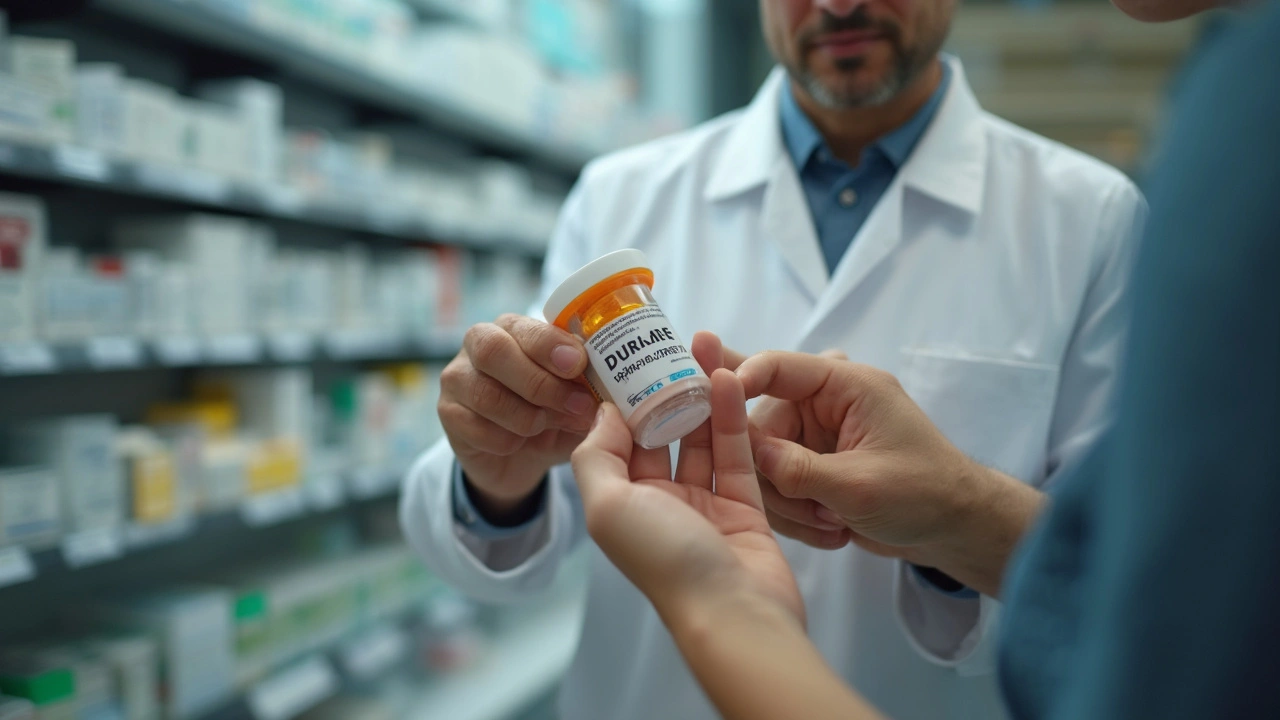Health and Wellness: Practical Guides on Meds, Conditions & Self-Care
Want straight answers about drugs and conditions? This hub offers clear articles on antibiotics like Duricef, acne drugs such as Accutane, and diabetes meds like Metformin.
Start by checking medication guides before talking to your doctor. Each drug post explains what it treats, usual dosages, common side effects, and safety flags. For example, antibiotic articles discuss when antibiotics help and when they don't; acne and acne-therapy pieces explain risks like isotretinoin's side effects and monitoring needs.
Supplements are popular but not harmless. We cover herbal options such as Chinese Club Moss and Fadogia Agrestis, plus nutrients like jasmine supplements. Read about real benefits, typical doses, and interactions with prescription drugs so you avoid surprises.
Practical tips for medication safety
Always confirm the exact drug name and dose with your prescriber. Ask how long you should take it and what to do if you miss a dose. Watch for common warning signs—rash, severe stomach pain, breathing trouble—and seek help fast. If a medication has serious risks, like isotretinoin or tamoxifen, ask about required tests and pregnancy precautions.
Online pharmacy deals can save money, but pick reputable sources. For chronic drugs like Metformin or daily Cialis, compare prices, check pharmacist reviews, and confirm shipping policies. Avoid sites that don’t require a prescription for prescription-only drugs.
Daily habits that actually help
Small habits add up. If weight gain is a side effect of antidepressants like Lexapro, try mixing HIIT sessions with steady-state cardio, watch calorie-dense snacks, and prioritize sleep. For asthma flare-ups during shortages of products like Ventolin nebules, talk to your provider about using inhalers with spacers or alternative bronchodilators.
Manage chronic problems by tracking symptoms. Keep a simple log: medication taken, mood, sleep, and notable side effects. Bring that log to appointments—doctors make better decisions with real patterns. For conditions like Parkinson’s or Alzheimer’s, early detection and regular check-ins can meaningfully improve care plans.
Use our site as a starting point, not a final answer. Each article links to studies, official drug labels, and practical how-tos. Read, note questions, and bring them to your clinician. If something feels off with a treatment, get professional advice rather than guessing.
Want a specific recommendation? Search by drug name or condition on this page. You’ll find focused articles, safety notes, and savings tips to help you act with confidence.
Quick checklist before you start a new medicine: confirm the diagnosis, know the exact dose and timing, list all other drugs and supplements, ask which tests are needed, and agree on follow-up. Call emergency services for signs of anaphylaxis — swelling, throat tightness, or sudden breathing trouble. For eye or vision changes while on drugs like nimodipine, report problems immediately. To avoid skin infections after swimming, dry feet and wear pool shoes. If you take HIV drugs such as nevirapine, stick to the schedule—missed doses raise resistance risk. When a product is unavailable, like Ventolin nebules, ask about substitutes and inhaler technique.
Stay curious, stay safe.










